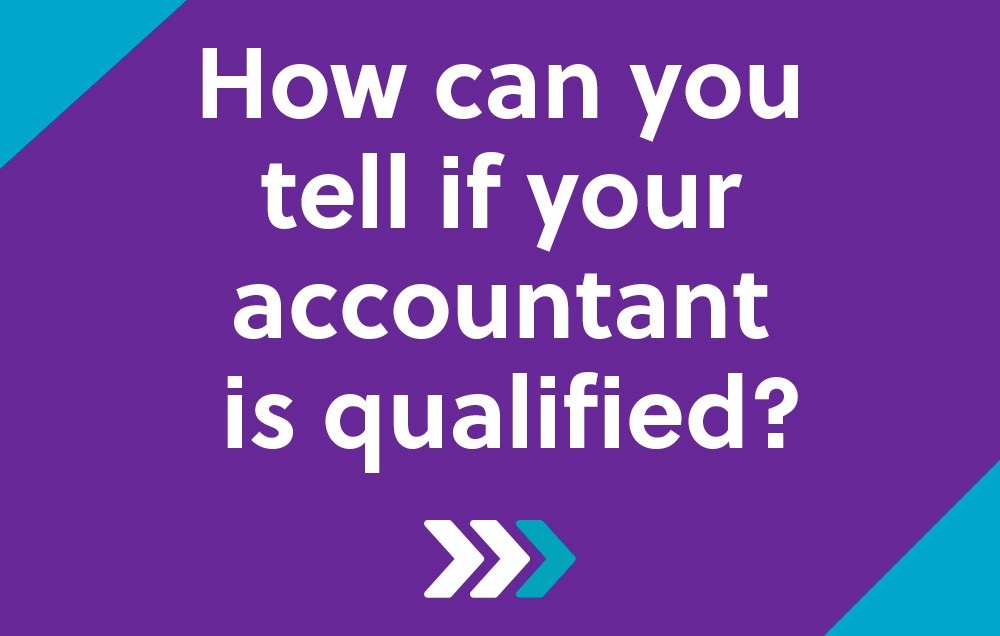19 Apr 2023
How to tell if your accountant is qualified

Finding an accountant can be an overwhelming process for many people and businesses. With endless options to choose from online and no clear guidance, it’s helpful to know the key things to pay attention to, ensuring you find a suitable one for your needs.
Ellie McQuade ACA, Technical Learning & Development Manager sheds light on what should be considered when choosing your accountant.
The term accountant does not have the same legal protection in the UK as roles such as doctors and lawyers, meaning anyone can call themselves an accountant, even if they do not have the qualification. This makes it extremely important to know if someone is the real deal or not.
Firstly, there are specific qualifications to look out for that highlight credentials and this is often specified in the title of the individual. In the UK, the major credentials to look out for are:
- Chartered Accountants (England & Wales): Members of the ICAEW (Institute of Chartered Accountants in England and Wales), use the letters ACA or FCA after their names. ACA stands for Associate Chartered Accountant, FCA is Fellow Chartered Accountant. ACA is given to members who have been qualified less than ten year, whilst FCA is awarded to members with over 10 years of experience.
- Chartered Certified Accountants: Members of the Association of Chartered Certified Accountants use the letters ACCA or FCCA after their names – the ACCA is given to anyone that has been in the role below 5 years and once they exceed that time, they are awarded fellowship and switch to FCCA.
- Chartered Accountants (Scotland): Members of the ICAS (Institute of Chartered Accountants in Scotland) use the letters CA after their names, which simply stands for Chartered Accountant.
- Accounting Technicians: Members of the Association of Accounting Technicians (AAT) use the letters MAAT after their names.
- Chartered Management Accountants: Members of the Chartered Institute of Management Accountants, use the letters CGMA or FCMA after their names.
- Chartered Public Finance Accountants: Members of the Chartered Institute of Public Finance Accountants, use the letters CPFA or FCPFA after their names.
- Chartered Tax Advisers: Members of the Chartered Institute of Taxation, use the letters CTA after their names and this is specific to tax.
- Tax technicians: Individuals registered with the Association of Tax Technicians use the designatory letters ATT after their names. Again, this qualification is specific to tax.
If you are looking to validate an accountant or double check their credentials, various membership bodies provide searchable online directories. For example, the ICAEW allows you to search for ICAEW Chartered Accountants and ICAEW licensed/accredited firms via specialism or location and you can search for IFA qualified members by location. Other professional bodies will have their own membership directories, linked below:
The level of support that an individual or business will need from an accountant will vary, as will the type of specific expertise required. Each accountant trains for at least three years before qualifying, and many will focus on an area which they will later specialise in. It could be tax, insolvency, audit, business advisory or corporate finance, to name a few.
Google will become your best friend when searching for an accountant in your area as you can target your searches to size and location of practices. LinkedIn is also a great tool to carry out further background research on potential accountants and their career history.
Although word of mouth is a more traditional way of finding services, it can be a powerful tool when finding an accountant, as first-hand experience is often helpful when making a decision.
One advisable way to find a suitable accountant to fulfil your needs is to settle on a firm and then use its website to learn more about the various team members who are experts in your field of interest. You will often see biographies of each accountant listed on a firm's website. This gives a potential client a much clearer idea of the accountant’s experience and professional background. It can sometimes be helpful to know how many years of experience they have had, if they have dealt with clients in yourindustry, and the different services that they are able to offer. Most firms will be happy to discuss through what services you require before discussing a quote for work.
Another thing to consider is the proposed fee which the accountant has given you. Gathering a few quotes from various accountancy firms to gauge an average price is advisable – that way if the quote seems to be considerably lower or higher, you will be able to identify questionable accountants.
The key is to do your research, shop around and make sure the accountant and firm you are choosing has appropriate experience in the right area.
If you are looking for an accountant, Monahans have an extensive team of friendly, approachable experts that have helped hundreds of businesses.
Get in touch today to find out more about our services, alternatively you can view and download our guide to How can you tell if your accountant is qualified?
Ellie McQuade